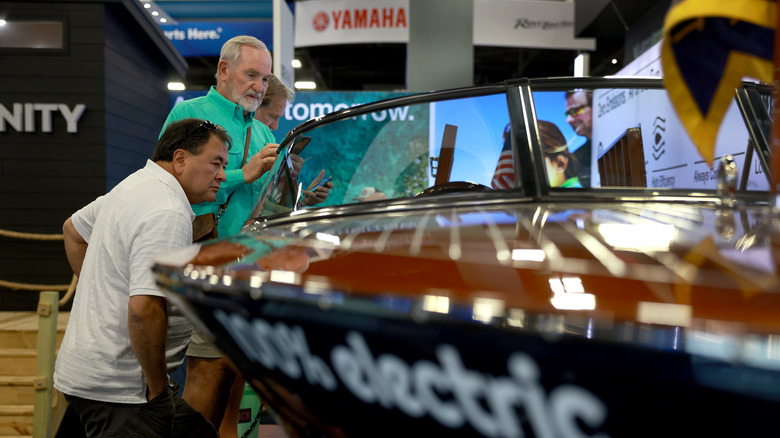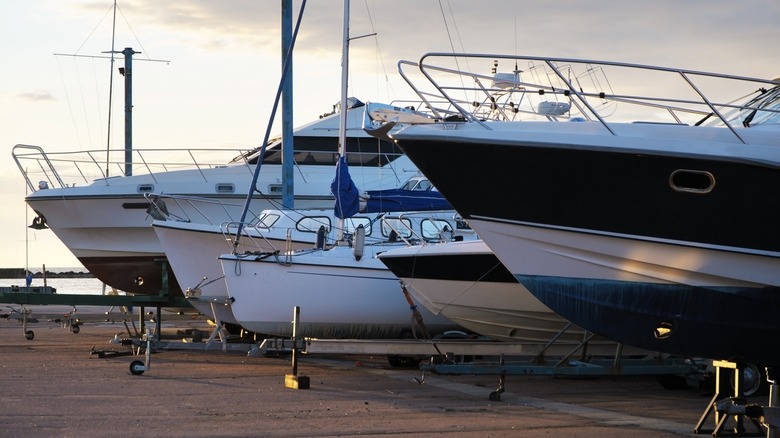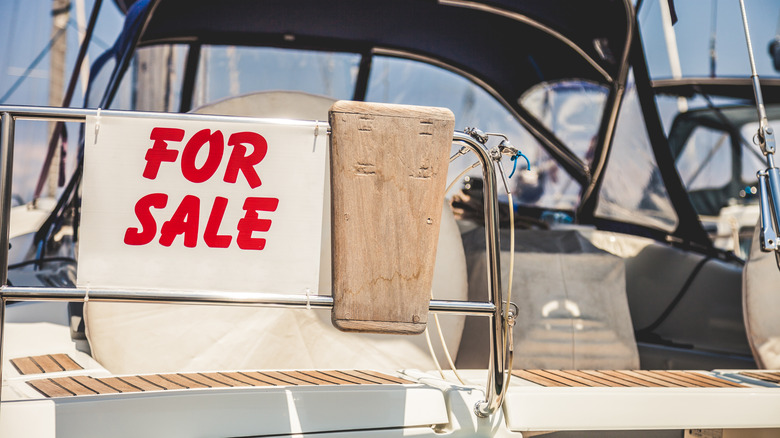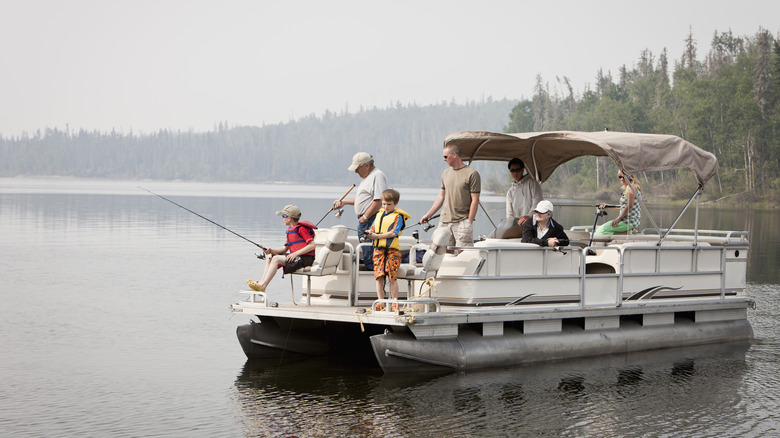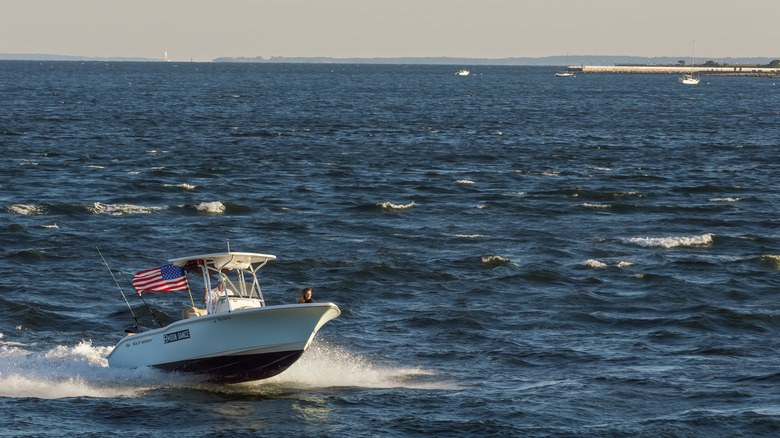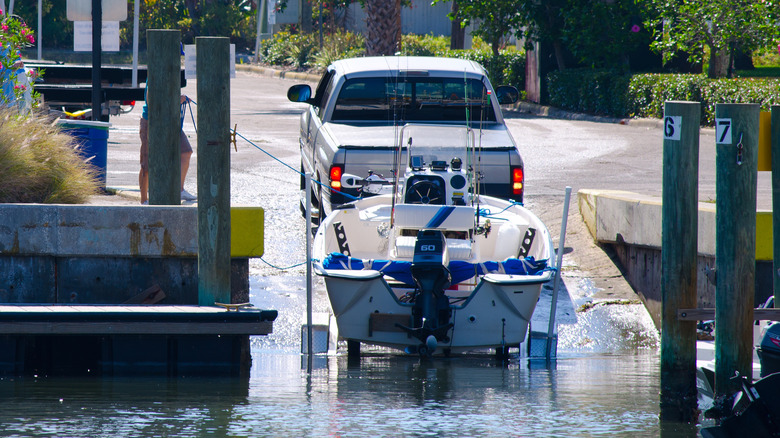Five Essentials To Remember When Choosing The Right Boat To Buy
Over a lengthy career as a fishing guide, boat captain, and outdoor writer, I have become quite familiar with the process of buying and selling boats for both work and pleasure. For starters, those looking to buy a boat for the first time need to know there is a lot of work, maintenance, and, sometimes, frustration that goes into boat ownership. However, there are also plenty of positives to owning your own boat. Among them are having the freedom to get on the water whenever you want, as well as having the flexibility to go where you want once you're on your favorite body of water.
If you are in the market for a boat, it is important to understand the perfect boat is very hard to find — if it even exists. More often, boaters have to choose a compromise to be able to utilize boats on a variety of waterways and for various activities. So, most often, it is not about finding the perfect boat, rather, it is about finding the boat that is right for you and most closely fits your wants and needs. To that end, there are five things to keep in mind when buying a boat.
Financial considerations of buying a boat
Before your daydreams of having fun on your new boat get too grandiose, there are a few hard facts you need to consider. The most obvious is cost. How much are you willing to spend on your new boat? You also need to decide if you want to pay cash or finance the boat. Financing on boats can be extended up to 20 years. These extended loan terms are relatively new in the boating industry and, according to Discover Boating, are due largely to improvements in manufacturing and technology that have resulted in a longer average lifespan of boats and motors.
You also need to be realistic about the ongoing costs of owning a boat. Right off the bat, the purchase cost of a boat is compounded by tax and title fees. Registration, while a nominal cost in most states, is a recurring one. Beyond that, you will need to maintain insurance on your boat. Additionally, you will need to purchase necessary boating equipment, including lifejackets for kids and adults, an anchor, anchor and dock lines, fire extinguishers, safety flares, and more. There are also costs associated with each time you take the boat out. Fuel and ramp fees are just a couple of examples of these costs. Finally, you will also have routine maintenance to pay for, as well as possibly the cost of storage and, in northern areas, winterizing the boat.
Should you buy a new or used boat?
Once you've determined an amount you're willing to spend, you also need to decide if you are looking for either a new or used boat. This process is very similar to the choice you need to make when buying a car, RV, or any other type of vehicle. There are advantages and disadvantages to both new and used. New boats typically come with manufacturer-backed warranties and, since they haven't been run, you know they haven't been poorly maintained or improperly used. Keep in mind, it is not just the hull and engine that need to be in good working order, but also the trailer, any electronics, livewells, lights, and all the pieces associated with handling the boat such as steering cables, trim tabs, jack plates, and tilt engines. While there is a peace of mind that comes with buying a new boat and knowing everything works, they obviously come with a heftier price tag.
As a result, many people turn to the used boat market. Used boats are sold by both dealers and individuals. With dealers, used boats are typically checked out for any issues, given a tuneup, and, possibly, have a bit of warranty. When it comes to buying from an individual, there are no such safety nets. Nonetheless, you may be able to get a good deal if you feel confident in assessing the condition of the boat and motor. As an aside, it is typically a bit safer buying used boats from a freshwater environment, as saltwater tends to cause a variety of issues for boats, motors, and electrical parts — especially if they haven't been well maintained.
Pick the boat best suited for your favorite activities
Once you get down to deciding what type and size of boat you want to buy, the first thing to consider is the intended use of the boat. If you are a hardcore practitioner of a certain watersport or activity, this decision will be much easier. There are boats specifically designed for just about every conceivable boating-related activity — water skiing, wake boarding, fly fishing, offshore fishing, etc. However, if you are like the vast majority of boaters and intend to use the boat for a variety of activities, this will be the first of a few compromises you will likely have to make when determining which boat to buy. The more different types of activities you plan to use the boat for, the less likely you will get a boat that is ideal for any one of them. That's where the compromise comes in — try to find a boat that pairs the best with your most important activities and is at least adequate for those you don't value as much.
Size will factor in for both the activities as well as the ages of those participating. Do your activities require a lot of gear to be hauled? Is speed or stability more important for what you like to do? Keep in mind, if kids or grandkids are involved, you will likely need a more stable vessel regardless of the activity to ensure their safety.
Consider the type of water where you will be boating
The next thing to consider is the type of water you will be primarily utilizing the boat in. Will the boat be mostly used in big, rough water or smaller, calmer waters? Is your favorite boating locale freshwater or saltwater? Are you most often running the boat in deep water or in shallow water areas? All of these will factor into not just the size and type of hull that's best, but also any additional equipment such as a jack plate to raise the engine when running in super shallow water.
Again, this is typically a compromise. As a rule, boats that are lighter and designed to run shallow are usually a bit rougher and wetter in open water. These boats often also have shorter gunwales, or sides, and can more easily capsize in rough seas than a deeper boat designed for open water. Conversely, boats that can easily handle rough, choppy water typically can't go quite as shallow and aren't as nimble. Given that most boaters will spend time in a variety of waters, there, again, is rarely one perfect fit. Pairing the primary activity with the type of water the boat is most often used in will help narrow the choices.
Towing capabilities and storage capacity can dictate boat size
If you can't get your new boat in the water, it can't serve its intended purpose. So, it is important to consider the towing capability of your vehicle. You need to ensure you have not only the tongue weight capacity and horsepower for towing on the highway, but also the necessary power for pulling the boat out of the water up a steeply inclined boat ramp. If you happen to have a ramp you go to regularly, consider the grade/incline and conditions of the ramp when mulling over your boat buying options. Based on the towing capabilities of your vehicle, you may end up needing to buy a smaller, lighter boat than you had intended.
You also need to take into consideration where the boat will be stored. If it will be stored on land, whether it be your driveway or garage or a rented storage unit, it is important to know not only the size of a boat that will be fit, but also the size of rig that can realistically be maneuvered into the spot. There are times that it is also necessary to go with a smaller boat than the maximum physical space will accommodate simply because the approach into the storage spot does not allow that size boat and trailer rig to be maneuvered into the storage area. If the boat will be stored in a slip, consider the length, width and depth of the slip. Additionally, if it will be lifted out of the water, take into account the weight limit of the lift as well as the height of the stall.
